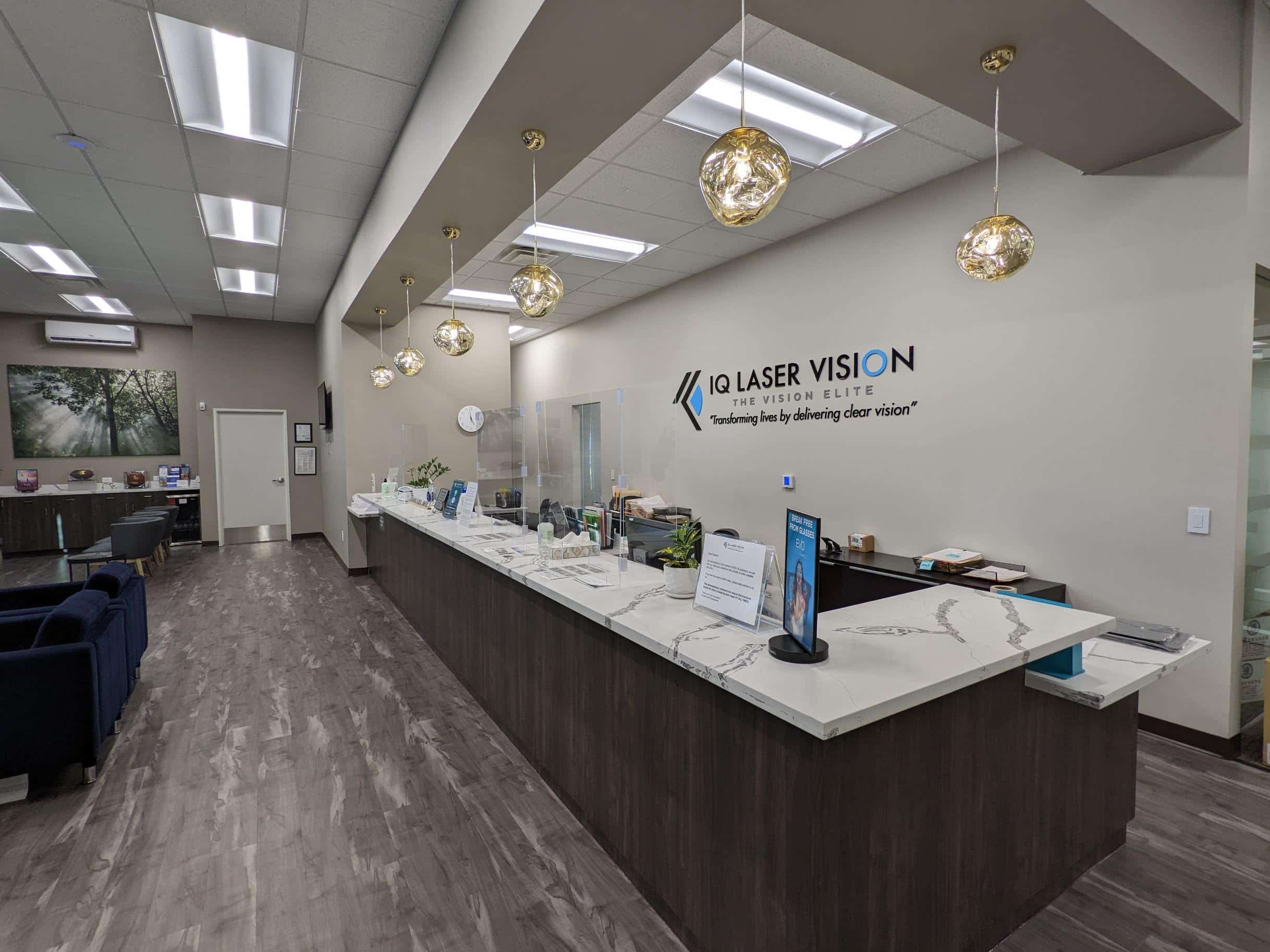With the recent spread of coronavirus (COVID-19) throughout the world, people are racing for hand sanitizer, masks and adding to their emergency home kits. But many people are overlooking a very important risk-factor simply because they never even thought about it, and few organizations have announced it.

Could your contact lenses be putting you at risk for the coronavirus?
Your eyes are an unguarded point of exposure, and contact lenses, if not used properly, could allow a pathway into the body for pathogens. Hand-to-eye contact is an important point of entry for germs that people often disregard. The American Optometric Association statementwarns that “the eye is a route of exposure.”
The American Academy of Ophthalmologyprovided some anecdotal reports that indicate there may be a link between coronavirus and conjunctivitis. That said, there appear to be some ocular symptoms that those affected by the coronavirus may experience (more on that in a bit).
But besides removing your contact lenses, or paying very special attention to your contact lens hygiene, there are a number of ways you can minimize your risk of developing coronavirus, and keep yourself and others around you healthy.
What is known about coronavirus
The 80,000 + cases of coronavirus since it was discovered in Wuhan, China in December of 2019 have mostly been mild, and the majority of people have recovered fully. The good news is that those who have recovered from the virus have developed an immunity to the pathogen. The incubation period seems to be about two weeks.
While the virus is spreading around the world, the mortality risk from the coronavirus is relatively low, especially when compared to that of other diseases and viruses throughout the world (think measles, seasonal flu, and HIV). Most of the cases that have resulted in death affected people with already-compromised or weakened immune systems. So as we wait to see how the potential spread of the virus unfolds, maintaining a healthy diet and exercise routine can help keep your body strong and able to ward off or fight off the coronavirus.
Some major cities, such as Los Angeles and San Francisco, recently declared a state of emergency to obtain greater access to government funding to protect against and fight the virus. While it’s important to be on the alert and take precautionary measures, the CDC wants us to know that it’s important to not panic and to wash our hands.
Common symptoms of coronavirus
Coronavirus (COVID-19) has been exhibiting flu-like symptoms among cases worldwide. The World Health Organizationlisted the most common symptoms as:
- Fever
- Cough
- Fatigue
- Shortness of breath
- Difficulty breathing
While health officials are still trying to understand the transmission between asymptomatic individuals, those already showing symptoms, as well as the latent period before symptoms appear, the symptoms below tend to occur at the onset of the illness. Some patients have also reported diarrhea, headaches and increased mucus production.
The American Optometric Association statementwarns that the coronavirus may also produce “ocular signs and symptoms, including photophobia, irritation and watery discharge and these are predominantly self-limited but may require supportive care.”
Staying healthy amid the spread of coronavirus
Because coronavirus spreads through droplets and body fluids (through sneezing, coughing, nose-blowing, etc), it can easily be passed from person to person through shaking hands or touching surfaces that have come in contact with droplets. So one of the main things you can do to prevent catching or spreading any sickness (and this is true for the common cold and flu too!) is to wash your hands properly, and frequently.
Contact lens hygiene
(If you have contact lenses, you should be following these common-sense hygiene practices every day–and if you’re not, now’s the best time to start).
- Wash your hands for 20 seconds with soap and warm water before handling contacts
- Clean contact lenses regularly by rinsing them and soaking them in plenty of contact solution overnight
- Keep them properly stored in their storage case between uses
- Avoid reusing old contact lens solution
- Avoid reusing contacts past their expiration date. Adhere to the contact lens replacement schedule.
- Avoid placing them in your eye if they fell on the ground
Daily prevention practices
- Maintain distance from anyone who may be infected (or seems to be feeling under the weather)
- Avoid handshaking (or hugging)
- Wash your hands regularly with soap and warm water. Make sure to lather your hands and wrists for at least 20 seconds before rinsing under warm water.
- Stay away from big crowds and crowded events where there’s more chance of coming in contact with sick people or the surfaces they’ve touched
- Keep your hands away from your face (and don’t touch your eyes, mouth or nose with your hands/fingers).
- Don’t sneeze into your hands – use a tissue or your elbow. Immediately toss the tissue, and wash your hands or use hand sanitizer.
- Keep hand sanitizer nearby for when soap and water aren’t readily available. Sanitizer should be 60-80% alcohol to be effective.
- Use your knuckles to push buttons in elevators or on copiers instead of your fingertips
Maintaining health in the workplace
- Stay home if you are not feeling well (consider going to visit your doctor)
- Wipe down your desk, phone, mouse, keyboard, etc (and doorknobs!) with disinfectant cleaning wipes
- Wash your hands whenever you touch a common surface (doorknobs, refrigerator handles, copier, etc)
Some final words on staying healthy
Just remember that while you may feel tempted to buy into the media delirium about coronavirus, the most important thing to do is keep calm and wash your hands after touching any public items. The CDC announced that if you’re healthy, wearing a mask will not prevent infections. However, for those showing any symptoms of illness, wearing a mask in public can help prevent the spread of infection to others.
We hope this PSA announcement about the importance of maintaining hygiene for your eyes and for your contact lens use will help keep many people healthy. If you do want to discuss options for eliminating your contact lenses and glasses altogether, we can help. Email us at [email protected]or give us a call at 888-539-2211.























